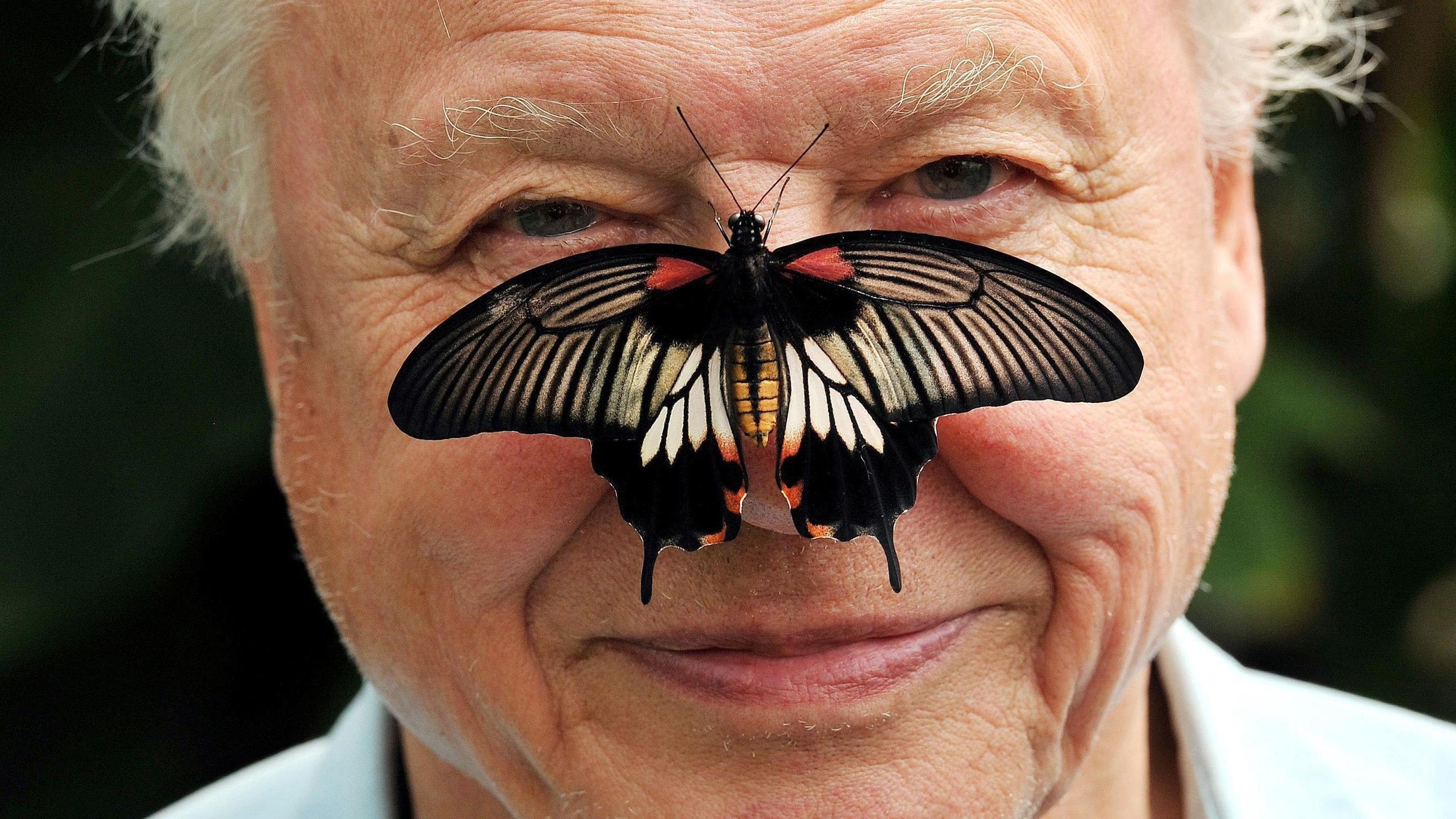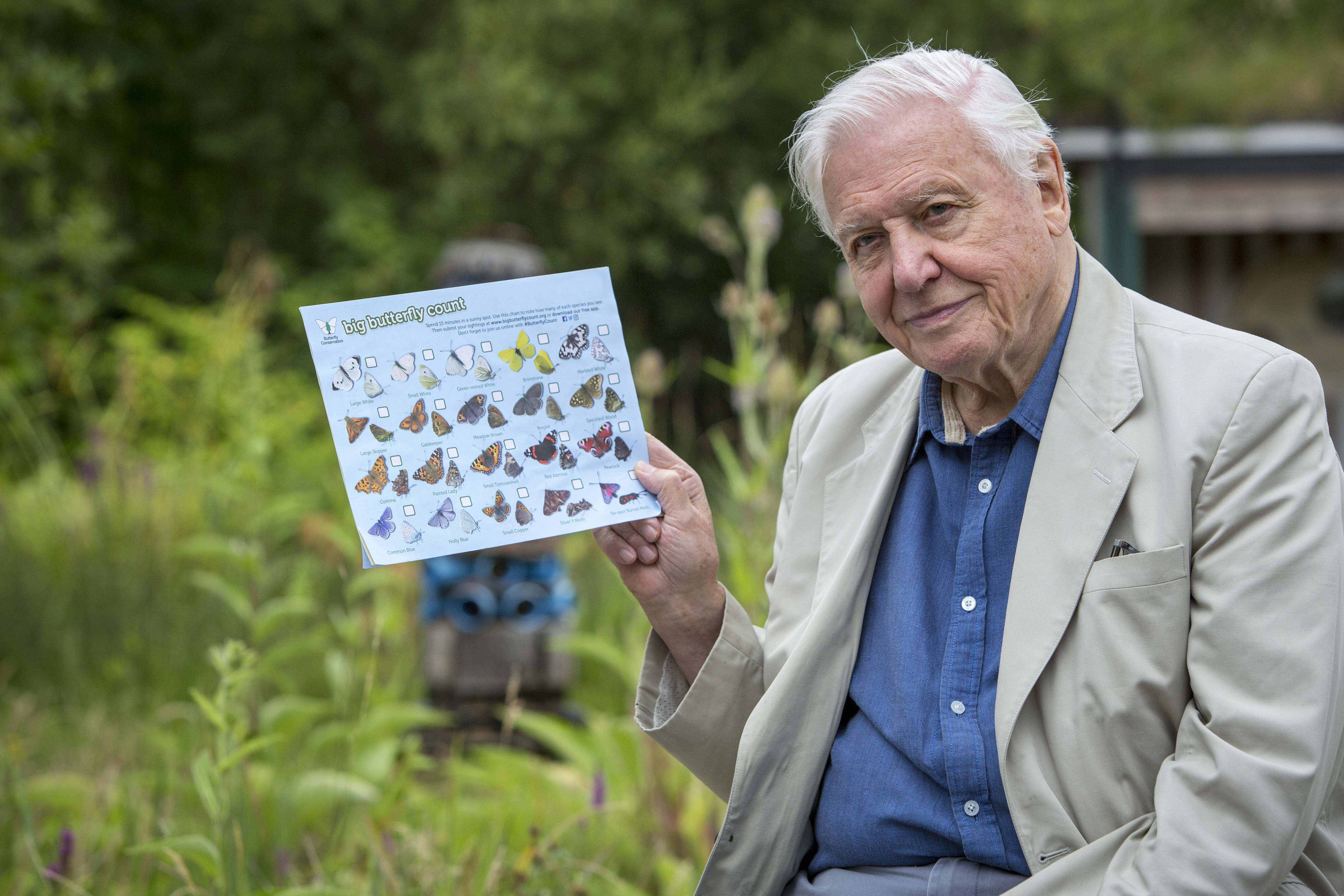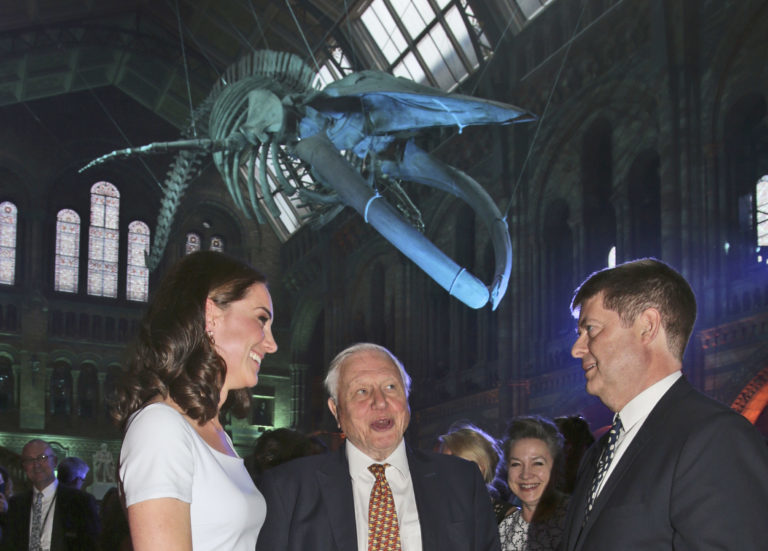
SIR David Attenborough wants us all involved in the Big Butterfly Count.
The TV nature expert hopes to see a rise in butterfly levels compared to last year.
Sir David Attenborough has urged people to get involved with the Big Butterfly Count in the hope that this summer will see a rise in numbers of the important insect.
Sir David has also stressed the importance of the country’s bee decline, and has urged anyone who finds a struggling insect give them sugar water to revive them back to health.
He said that the human race would only have four years to live should the bee population become extinct, noting that 1/3 of bees have already died out thanks to pesticides.
The national event, which launches on Friday, invites people all over the country to record how many of the winged species they can spot for the Butterfly Conservation charity.
TV nature expert and president of the organisation, Sir David said last year’s results showed one of the worst on record for butterfly numbers in the UK.
He told BBC Breakfast on Friday: “The Big Butterfly Count is to discover what is actually happening.
“Last year was the fourth worst year on record for butterflies and what we want to know is what is happening this year.
“What people can do is go into the garden, or any open sunny place, and start looking around for 15 minutes and tell us how many butterflies they saw and what kind they were.
“Even if they don’t see any at all, that’s an important piece of information.
He added that this year’s count looks “pretty promising at the moment,” partly due to the warm weather over recent weeks, adding: “Butterflies can bounce back.”
“Female butterflies lay so many eggs that if only a tiny proportion of them survive then they are doing quite well, but if conditions are good, then you will actually get a lot of butterflies of different kinds and we hope we will.”Listing his own favourite types of the insect – which, along with bumblebees, are crucial to ecosystems – he continued: “The Peacock is one of the most beautiful, and happily one of the commoner ones.
“Red Admirals are also very exciting, but they are not doing quite as well, and then there’s the Ringlet, the Meadow Brown and the Clouded White.
“In the past there were (common and rare species) but we have gone past that situation and now, what were once common, are going up and going down.”
Sir David’s live appearance form the WWT London Wetland Centre adds to a busy week for the 91-year-old naturalist, who joined the Duchess of Cambridge on Thursday night for the re-opening of the Natural History Museum’s famous Hintze Hall.
The Big Butterfly Count continues until August 6 and spotter charts are available on the Butterfly Conservation website.

Enjoy the convenience of having The Sunday Post delivered as a digital ePaper straight to your smartphone, tablet or computer.
Subscribe for only £5.49 a month and enjoy all the benefits of the printed paper as a digital replica.
Subscribe
